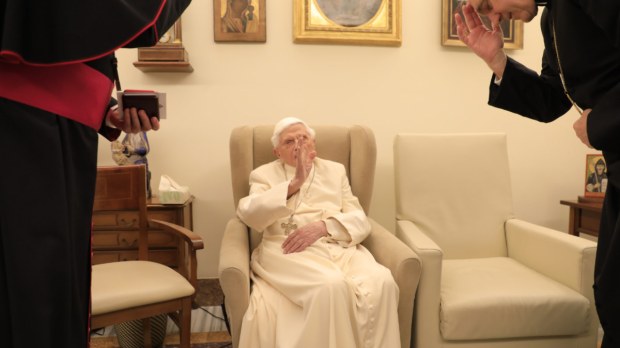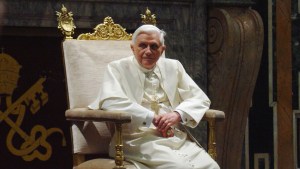Along with a letter from Benedict XVI on the Munich report, a short three-page annex was also published, written by the four legal experts – Stefan Mückl, Helmuth Pree, Stefan Korta, and Carsten Brennecke—who had already been involved in drafting the 82-page response to the commission’s questions. Those responses, attached to the report on abuse in Munich, had stirred up controversy, and contained a transcription error that led to the assertion of Archbishop Ratzinger’s absence at a meeting in which it was decided to accept a priest who had been guilty of abuse.
In their new answers, the legal experts reiterate that Cardinal Ratzinger, when he accepted the transfer of the priest who was to be treated in Munich, was not aware that he was an abuser. And in the meeting of January 1980, the reason why he had to receive treatment was not mentioned, nor was it decided to engage him in pastoral activity. The documents confirm what Ratzinger said.
The reason for the error regarding Ratzinger’s initially-denied presence is then explained in detail: Only Professor Mückl was allowed to view the acts in electronic version, without being allowed to save, print, or photocopy documents. In the subsequent phase of processing, Dr. Korta inadvertently made a transcription error asserting that Ratzinger was absent on January 15, 1980. One cannot therefore impute this transcription error to Benedict XVI as a conscious false statement or “lie”. Among other things, already in 2010, several press articles, never denied, spoke of Ratzinger’s presence at that meeting, and the Pope Emeritus himself, in the biography written by Peter Seewald and published in 2020, claims to have been present.
Experts say that in none of the cases analyzed by the report was Joseph Ratzinger aware of sexual abuse committed, or suspicion of sexual abuse committed, by priests. The documentation does not provide any evidence to the contrary and in fact, answering precise questions on this point during the press conference of presentation, the same lawyers who drafted the report said that they presumed with probability that Ratzinger knew, but without this claim being corroborated by testimonies or documents.
Finally, the experts deny that the responses they drafted on behalf of the Pope Emeritus downplayed the seriousness of a priest’s exhibitionist behavior. “In his memoir Benedict XVI did not minimize the exhibitionist behavior, but expressly condemned it. The phrase used as alleged evidence of minimizing exhibitionism is taken out of context.” In his response, Benedict XVI had stated that abuses, including exhibitionism, are “terrible,” “sinful,” “morally reprehensible”, and “irreparable.” In the canonical evaluation of the event, “there was only a desire to recall that according to the canon law then in force, exhibitionism was not a crime in the restricted sense, because the relevant penal norm did not include in the case in point behavior of that type.”


